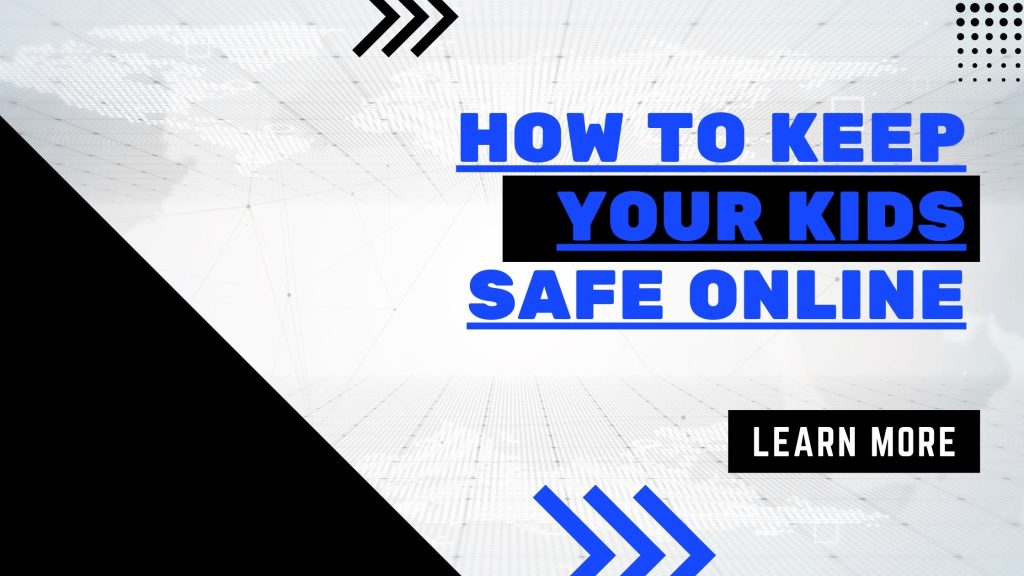Where technology plays a significant role in our lives, ensuring the safety of our children while they navigate the online world is of utmost importance. With social media platforms, online gaming, and instant messaging becoming an integral part of their daily routines, it is essential for parents to equip themselves with the knowledge and tools to protect their children from potential online dangers. In this blog post, we will explore various strategies and practical tips to help you keep your kids safe online.
How can I keep my child safe on social media?

Social media platforms offer exciting opportunities for children to connect with friends, share experiences, and express themselves. However, it is crucial to establish guidelines to ensure their safety:
Educate your child: Teach your child about the potential risks associated with social media, including cyberbullying, privacy concerns, and the importance of being cautious when interacting with strangers online.
Set privacy settings: Familiarize yourself with the privacy settings of the social media platforms your child uses. Adjust these settings to restrict access to personal information and control who can view their posts.
Monitor their activity: Regularly check your child’s social media profiles and friend lists. Encourage open communication and discuss any concerns or questionable content you come across.
What are 10 ways to stay safe online?

Beyond social media, the online world is vast, and there are numerous measures you can take to protect your child’s digital well-being:
- Teach strong passwords: Help your child create strong and unique passwords for each online account. Emphasize the importance of not sharing passwords with anyone, including friends.
- Use parental control software: Install parental control software on devices your child uses. These tools can filter inappropriate content, set screen time limits, and monitor online activities.
- Practice responsible downloading: Encourage your child to only download apps, games, or files from reputable sources. Discuss the potential risks associated with downloading content from unknown or suspicious websites.
- Foster open communication: Create a safe environment where your child feels comfortable discussing any online experiences or concerns they may have. Encourage them to approach you whenever they encounter something suspicious or alarming.
- Educate about online scams: Teach your child about common online scams, such as phishing emails or fraudulent websites. Explain the importance of being skeptical of unsolicited requests for personal information.
- Instill critical thinking skills: Help your child develop critical thinking skills to evaluate the credibility of online information. Teach them to question and verify sources before accepting information as factual.
- Be a positive role model: Set an example by practicing safe online behaviors yourself. Children often learn from their parents’ actions, so demonstrate responsible online habits.
How can I keep my 12-year-old safe online?

As children grow older, their online activities and interests evolve. Here are some specific considerations for keeping your 12-year-old safe online:
Discuss appropriate online behavior: Have open conversations about how to communicate respectfully and responsibly online. Teach them about the potential consequences of sharing inappropriate content or engaging in cyberbullying.
Monitor online friendships: Keep an eye on your child’s online friends, especially those they interact with regularly. Encourage them to connect with individuals they know personally and discourage befriending strangers.
Emphasize the importance of consent: Teach your child about the importance of obtaining consent before sharing photos or personal information about themselves or others.
How can I keep my child safe online in their early years?

Even young children can benefit from early guidance to ensure their safe online experiences:
Supervise online activities: Always monitor and participate in your child’s online activities, especially during their early years. Sit with them while they explore age-appropriate websites or educational apps, and engage in interactive activities together.
Use child-friendly platforms: Choose online platforms specifically designed for young children. These platforms often offer a safer and more controlled environment, with age-appropriate content and enhanced privacy settings.
Teach about personal information: Help your child understand what personal information is and why it should be kept private. Emphasize the importance of not sharing their full name, address, phone number, or other identifying details online.
Encourage digital empathy: Teach your child to be kind and considerate towards others online. Emphasize the importance of treating others with respect, avoiding hurtful comments, and reporting any bullying or inappropriate behavior they may witness.
Limit screen time: Set reasonable limits on screen time for young children. Encourage a healthy balance between online activities, physical play, and face-to-face interactions.
As Parents We need Pay Attention to this

In a rapidly evolving digital landscape, safeguarding our children’s online safety requires continuous education, open communication, and proactive measures. By implementing the strategies outlined in this comprehensive guide, you can help protect your child from potential online dangers and promote responsible digital citizenship.
Remember, staying engaged in your child’s online activities, fostering open communication, and setting appropriate boundaries are essential. Encourage your child to explore the internet safely, empowering them to make informed decisions and navigate the online world with confidence.
By prioritizing their safety today, we can help shape a generation of digital-savvy individuals who are equipped to make responsible choices and thrive in the online realm.






